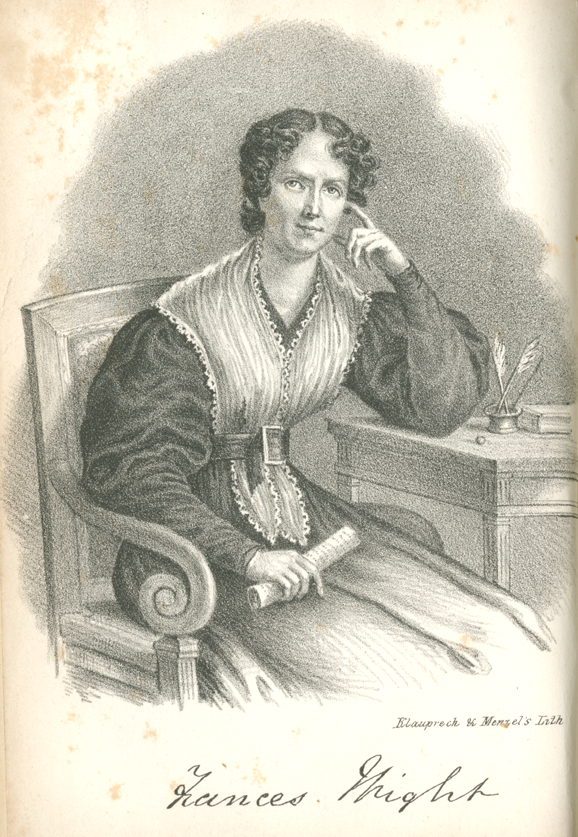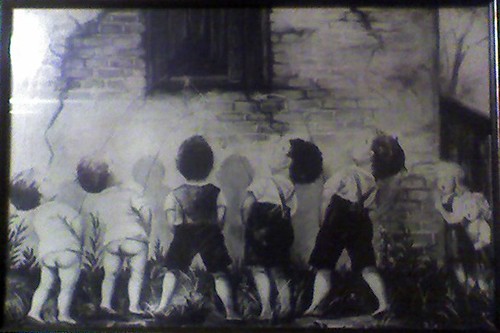Speak of change, and the world is in alarm.
And yet where do we not see change?
Frances Wright was born in Scotland, she was a writer, feminist, and abolitionist. During college she became intrigued with the newly independent United States,
"A two-year tour of the United States with her sister provided Frances Wright with the material for her Views of Society and Manners in America(1821), an enthusiastic account of Americans' patriotic idealism."
She was an advocate for Women's Rights, concerning abortion, birth control, and liberalized divorce laws.
She lived in New York, where I'm sure, Walt had met and talked with her.
Walt was quoted saying, "We all loved her, fell down before her, her very appearance seemed to enthrall us, She was sweeter nobler, grander-multiplied by twenty-than all who traduced her"
I found out that Walt was brought up with influences of deism and quakerism. Deism, which was handed to him through his father and who subscribed to the Free Enquirer, which was edited by Fanny Wright, a deist. Deism puts all religions on the same levels and tried to extract from the basic moral principals.
They both show signs of this in their writings and beliefs. The morals of human rights, compassion and equality.
I found that he would go and listen to her lectures. I can imagine how well the two would get along. Fanny, as she was called, spoke out against misogynistic treatment in churches, society and advocated for women rights. She didn't lay down and accept the roles given to her, she wanted to break the mold. This is much like Whitman and his ways, I can imagine how they would adore each other, share ideals and thoughts.
http://www.librarycompany.org/women/portraits/wright.htm
http://books.google.com/books?id=G7RgMU3eC9sC&pg=PA3&lpg=PA3&dq=fanny+wright+and+walt+whitman&source=bl&ots=TXiuxpfUcf&sig=GJ07V_BR6dDKjGwzdfGWlCH-xTk&hl=en&sa=X&ei=cfZOT6L0MMrFtgf0sNCoDQ&ved=0CCcQ6AEwAQ#v=onepage&q=fanny%20wright%20and%20walt%20whitman&f=false
http://books.google.com/books?id=oLZa9nDWz1AC&pg=PT17&lpg=PT17&dq=fanny+wright+and+walt+whitman&source=bl&ots=8kQdooLmgu&sig=37aXga7sTWZVT5jffCBQ3dCdbkA&hl=en&sa=X&ei=cfZOT6L0MMrFtgf0sNCoDQ&ved=0CEAQ6AEwBA#v=onepage&q&f=false




